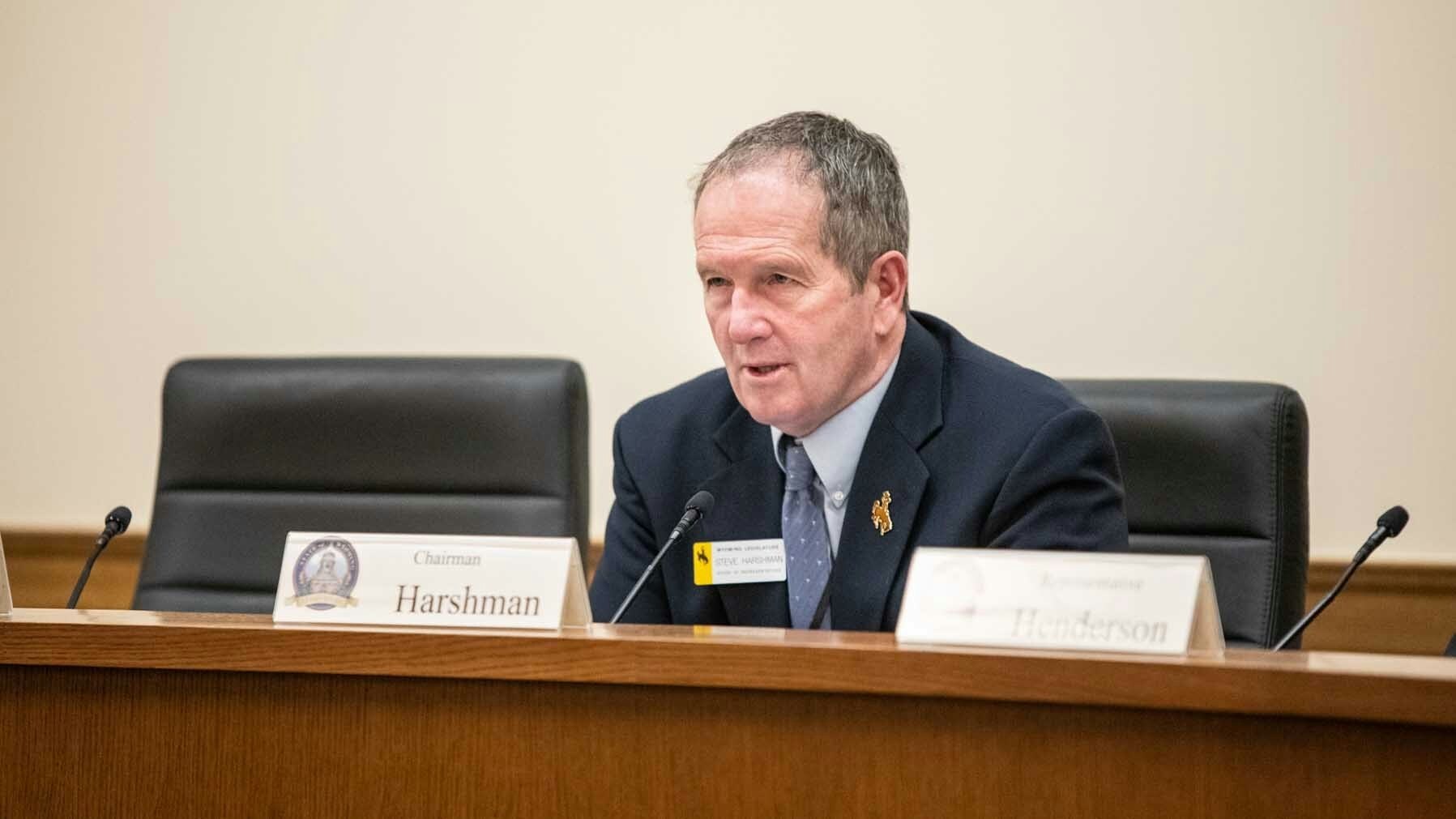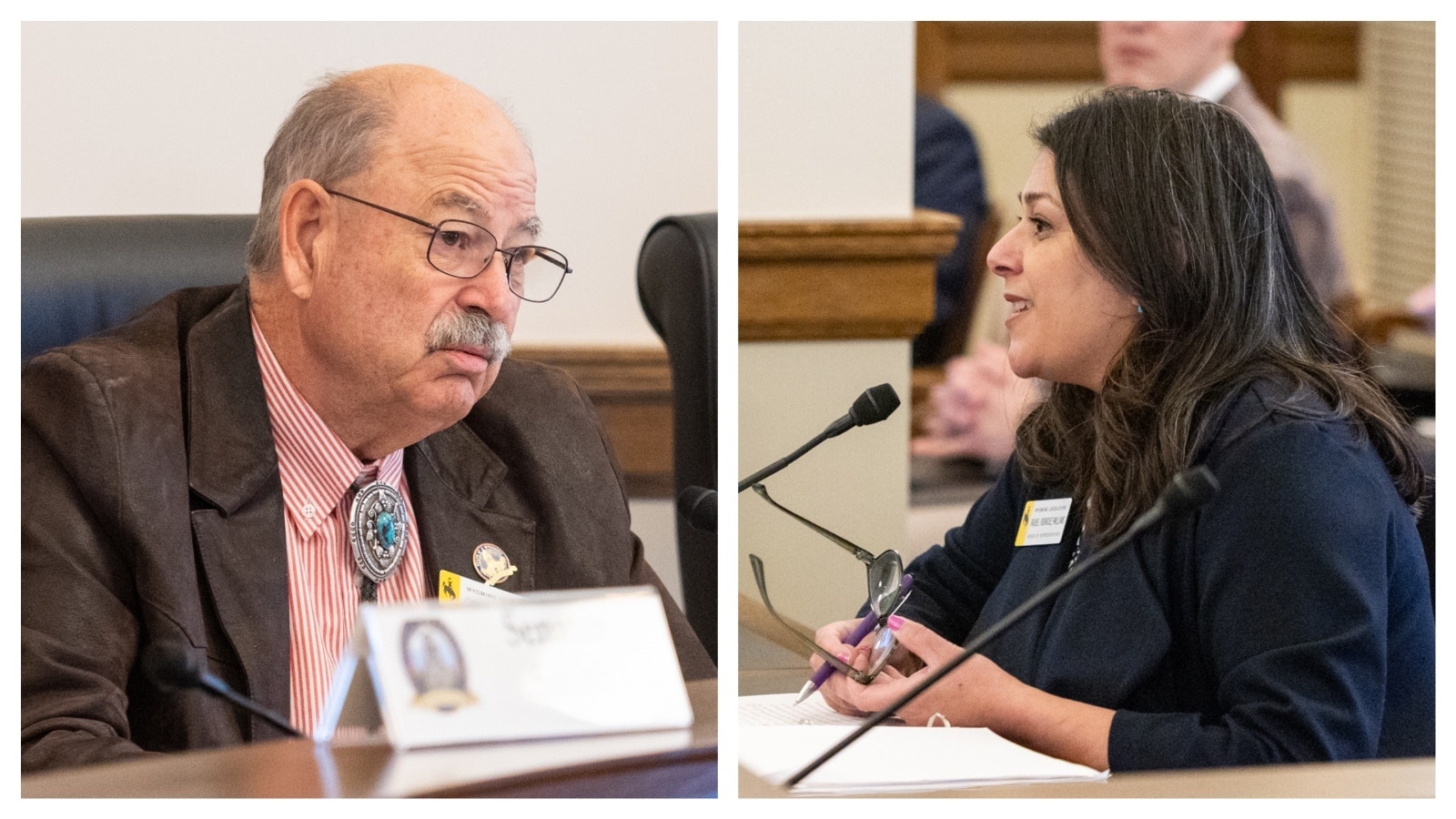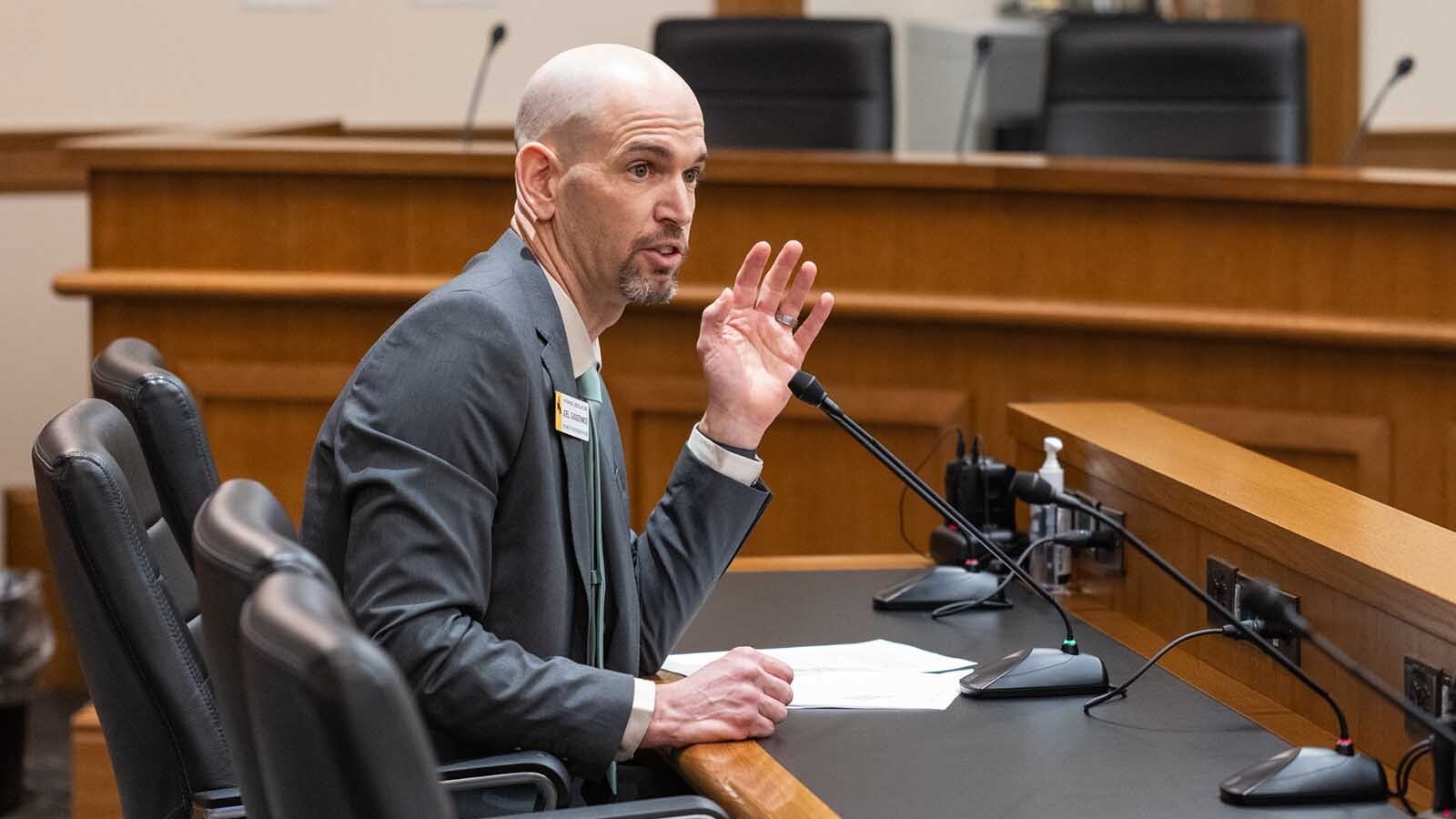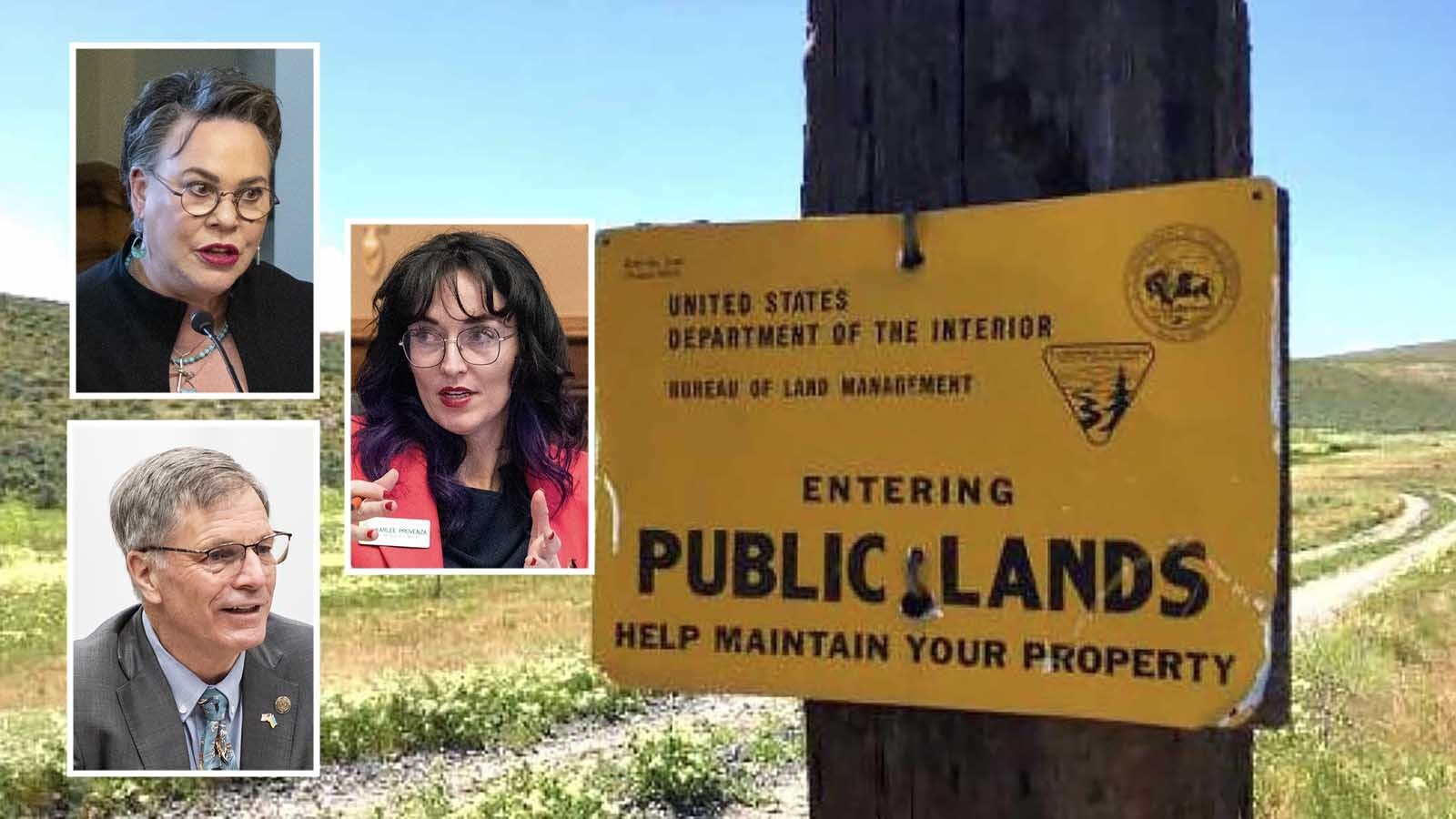Heartfelt stories and emotional pleas highlighted a Thursday afternoon meeting of the Wyoming Legislature’s House Revenue Committee.
Lawmakers were discussing House Bill 65, which would fund suicide helpline services based in Wyoming through the establishment of a permanent trust. The legislation passed on a 6-3 vote.
The unfortunate nature of suicide is that its victims aren’t around to tell their stories or advocate for others facing similar struggles. That’s a task that falls to their loved ones.
“I think this bill is one that helps us all better look out for our neighbors,” said Cheyenne resident Richard Garrett.
Garrett lost his sister, who worked in mental health counseling, to suicide in 1995. He and his family offer a prayer for his lost sibling each year on her birthday.
“We wish she could’ve been comforted when she was discouraged and sorrowful,” he said. “But she remains in our hearts, and I think she would very much support this bill too.”
Does It Work?
People experiencing a mental health crisis in Wyoming, or any state, can receive help by dialing 988 to reach a suicide and crisis lifeline.
There are two suicide prevention call centers in Wyoming, located in Casper and Greybull, dedicated to providing suicide and crisis intervention. These 24/7 call centers each receive about 225 to 450 calls a month.
One common complaint levied against government-run mental health services is they are not effective and can equate to throwing money at a problem.
Government Not The Solution
Cathy Ide, wife of state Sen. Bob Ide, R-Casper, spoke against the legislation Thursday. She shared the story of her son, who took his own life.
“If you are not able to save your children, then how can you possibly believe that a government program can?” Ide questioned. “No state agency can heal a broken, wounded spirit.
“The government can never be the solution to issues of the heart and suicide.”
Ide said she would prefer a private, nonprofit agency to manage these efforts.
Rep. Bill Allemand, R-Casper, also doesn’t support HB 65, but offered a similar story of heartbreak. He told the story of how his niece lost her best friend to suicide when she took her own life while on the phone with her.
“I don’t see how this bill is going to help us. It’s going to cost us money,” he said, adding that he would ask for double the funding if he thought it could have an impact.
‘An Important Tool’
Rep. Liz Storer, D-Jackson, said the importance of long-term funding is critical. She describes the call centers as just another tool in the toolbox for fighting mental health issues.
“It’s an important tool,” she said.
She also said if government shouldn’t play a role in helping people’s lives, “we should all just go home now.”
Former Natrona County Commissioner Brett Hendry also spoke in favor of the legislation.
“We have a trust fund we set up for wildlife, so why can’t we have a trust fund for people in crisis?” Hendry asked.
He speculated that 911 services likely went through the same “growing pains when first created. “Build it and they will come.”
Former lawmaker Pat Sweeney described suicide call centers “as a very important piece of the puzzle.”
Sweeney said he lost his brother and a few close friends to suicide.
“Our nonprofits are stretched, our churches are stretched beyond belief,” he said. “To believe there isn’t a role for government in this, I believe just the opposite.”
Wyoming Should Help Its Own
Many supporters of the bill like Rep. Dan Zwonitzer, R-Cheyenne, brought up the importance of offering Wyoming-based services to Wyoming callers to build a better connection between the two parties over a shared culture.
Calls unanswered in Wyoming are redirected to the National Suicide Prevention Lifeline.
When the call centers went 24/7 in July, the rate of monthly call pickups increased from 44%-70% to 82%-88%.
One shortcoming of the current system is that it relies on the area code of a caller’s phone number to determine what call center to be directed to. This means that a Wyoming resident with a phone number from an out-of-state area code will not be directed to an in-state call center.
Andi Summerville, executive director of the Wyoming Association of Mental Health and Substance Abuse Centers, said plans are underway to develop a geo-location identification for directing calls to the most appropriate call centers.
Costs
The two call centers were first established in Wyoming in 2020 with limited hours on a budget of $250,000.
In early July, they were upgraded to 24 hours a day, seven days a week. The upgrades were made available based on a two-year allocation of $2.1 million in American Rescue Plan Act money and $400,000 from the state’s general fund, the state’s current dedication of funding for the call centers.
Summerville has been one of the most vocal supporters of the bill. She is concerned where money will come from to support the call centers after the federal stipend expires in 2024.
But President Joe Biden’s administration also allocated $24 million to call centers last year, of which Wyoming received $250,000. In the next year, it’s planning to provide $432 million, an 18-fold increase. It is unknown yet how much Wyoming will receive.
“I do believe the Biden administration has sufficiently funded it,” Rep. John Bear, R-Gillette, said about voting against the bill.
Bear has lost a child of his own to suicide and said, “I think it’s premature to create this at this time.”
The legislation proposes $46 million to fund the 988 System Trust Fund Reserve Account.
Other Money Available
Rep. Tony Locke, R-Casper, voted against HB 65 and said the state should pursue outside grants for funding the call centers.
Annual earnings from the trust fund are anticipated to reach $2 million by 2025, which would be appropriated to the Wyoming Department of Health budget to manage the call centers.
Rep. Steve Harshman, R-Casper, said the trust fund can be revoked at any time.
Bear proposed delaying appropriating $40 million to the trust fund until 2025, while paying $6 million into the fund now. The amendment failed. Bear said he would have likely voted to support the legislation if his amendment had passed.
Federal legislation approved by former President Donald Trump in 2020 grants states the authority to assess a fee on calls made through the 988 hotline. Although this option was discussed during the Revenue Committee’s discussion of the bill last summer, there wasn’t much consideration given to it Thursday.
Around a dozen organizations, including the Wyoming Business Council, spoke on behalf of the legislation over the course of two meetings Thursday. Summerville said the extent of this input was valuable for their cause.
“I believe that was very powerful,” she said.





